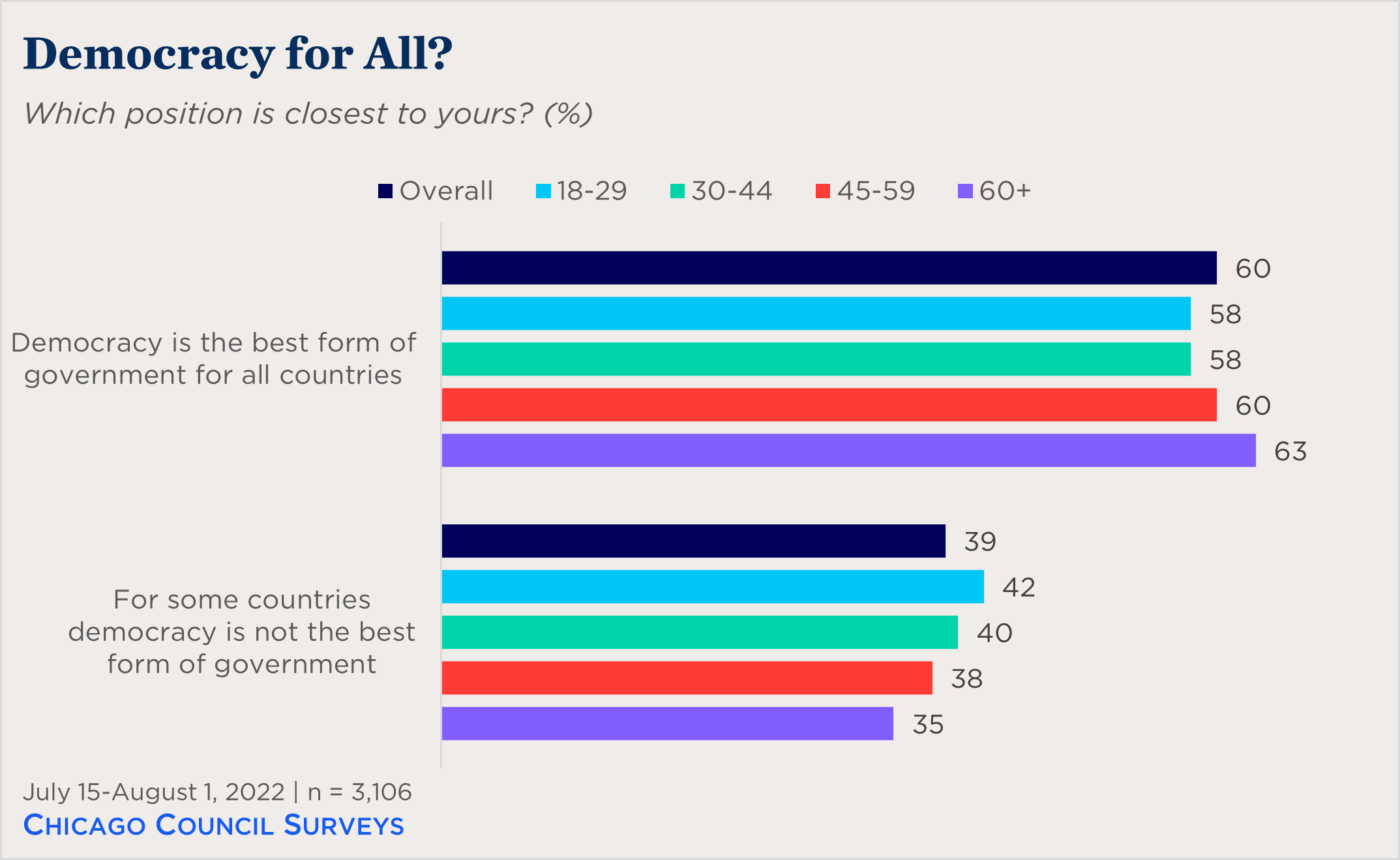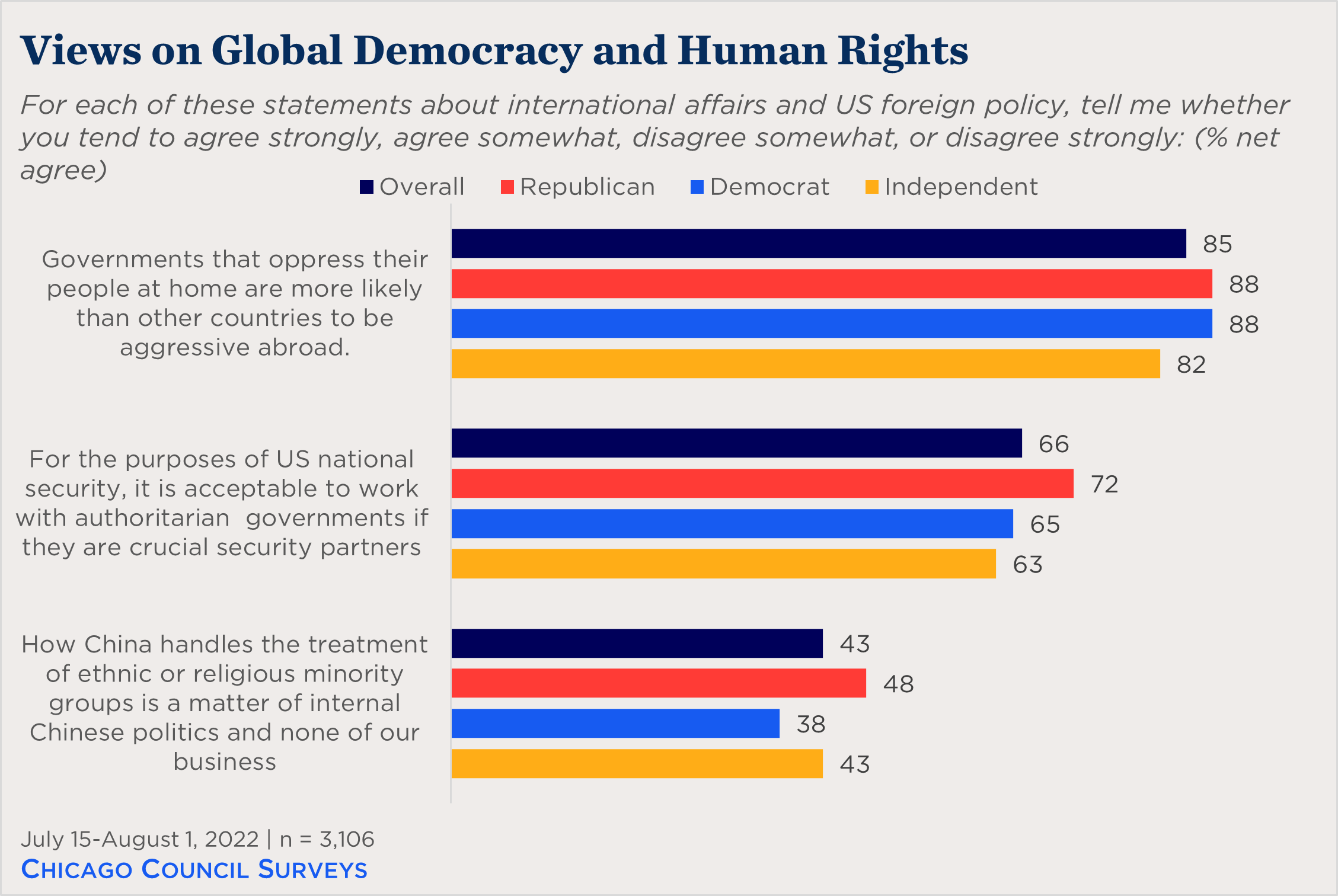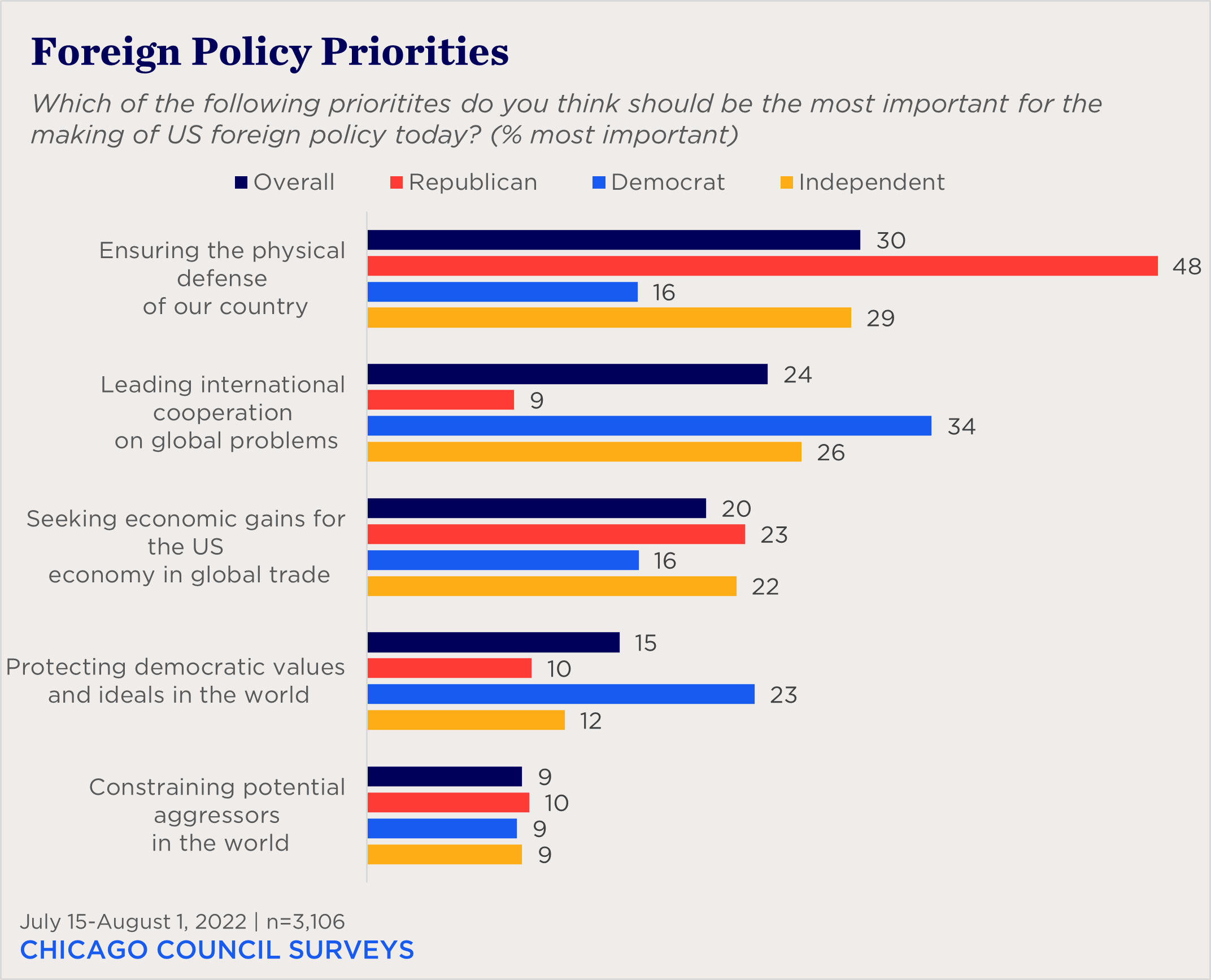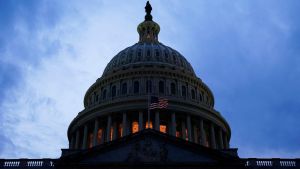Most Americans Willing to Work with Autocrats to Protect the US

The public is more concerned about national security than promoting human rights and democracy abroad, Council polling shows.
Key Findings
- While six in 10 say democracy is the best form of government for all countries (60%), four in 10 disagree (39%).
- Only 15 percent say protecting democratic values and ideals in the world should be the top priority when crafting US foreign policy.
- Two-thirds agree it is acceptable to work with authoritarian governments if they are crucial US security partners (66%).
Six in 10 Say Democracy Is Best for All Countries
A solid majority of Americans say democracy is the best form of government for all countries (60%). But four in 10 believe otherwise, saying that for some countries, democracy is not the best form of government (39%). While there are some marginal differences, Americans across partisan and age groups are largely in agreement on this belief. Democrats are most likely to believe that democracy is best (69%), but majorities of Republicans (59%) and Independents (53%) concur. And while a lot of attention has been focused on younger Americans and their views of democracy, they are only slightly less likely than their older counterparts to favor democracy as the best form of government for all countries.

Global Democracy—Nice but Not Necessary
Americans recognize that it is in US interests for other countries to respect the underlying principles of human rights and peaceful international relations. A majority of Americans agree that governments that oppress their people at home are more likely to be aggressive abroad (85% agree) and a majority disagree that the way China treats ethnic and religious minorities within their country is “none of our business” (57% disagree).

Despite these pro-democracy inclinations, only 46 percent of Americans believe the decline of democracy around the world poses a critical threat to the United States—the third-lowest of all threats included in the 2022 Chicago Council Survey. Moreover, only 15 percent say protecting democratic values and ideals in the world should be the top priority when crafting US foreign policy (compared to ensuring the physical defense of the United States at 30%).

Previous Chicago Council Surveys have found that Americans are far more concerned about protecting democracy at home than promoting it abroad. In 2021, when asked how important various factors are in the United States remaining influential on the global stage, seven in 10 classified strengthening democracy at home as very important compared to only 44 percent who thought promoting democracy and human rights around the world is very important.
Americans Willing to Work with Non-Democracies to Ensure US Security
The Biden administration recently released its first National Security Strategy (NSS), in which it made the case that foreign governments do not need to be “remade in the American image in order for us to be secure.” For example, in the case of President Joe Biden’s visit to Saudi Arabia this past summer, the White House saw the trip’s objectives—integrating Israel into the region, aligning with Saudis on the status of the Iran nuclear deal, and facilitating a ceasefire between Saudi Arabia and Yemen—as too important to be abandoned over concerns about the regime’s spotty record on human rights and democracy. While some may see this trip and the language in the new NSS as running against the administration’s previously stated aims to promote democracy abroad, the course the administration is charting on this issue seems largely in line with the views of the American public.
Americans seem willing to tolerate the moral tradeoffs of working with undemocratic countries if American national security is at stake. Two-thirds overall, and majorities across party lines, agree with the statement “For the purposes of US national security, it is acceptable to work with authoritarian governments if they are crucial security partners.” And when asked what criteria are important for a US ally to possess, sharing US democratic values (37% very important) ranks below sharing US security (51%) or economic (40%) interests and working with the United States to limit the influence of Russia (49%) or China (44%).
Conclusion
President Biden has made the protection of US democracy a major priority of his presidency, and his administration’s efforts overlap with his broader aim to bolster democracy abroad. For their part, the American public recognize the value of global democracy but are more concerned about protecting US national security than about promoting human rights and democracy abroad. In the policy context, this means that majorities across the political spectrum are willing to accept working with autocrats if it will help protect US national interests.




Methodology
This analysis is based on data from the 2022 Chicago Council Survey of the American public on foreign policy, a project of the Lester Crown Center on US Foreign Policy. The 2022 Chicago Council Survey was conducted July 15–August 1, 2022, by Ipsos using its large-scale nationwide online research panel, KnowledgePanel, in both English and Spanish among a weighted national sample of 3,106 adults 18 or older living in all 50 US states and the District of Columbia. The margin of sampling error for the full sample is +/- 1.8 percentage points. The margin of error is higher for partisan subgroups or for partial-sample items.
Partisan identification is based on how respondents answered a standard partisan self-identification question: “Generally speaking, do you think of yourself as a Republican, a Democrat, an Independent, or what?”
The 2022 Chicago Council Survey is made possible by the generous support of the Crown family and the Korea Foundation.

Related Content
 Global Politics
Global Politics
Can we prevent global democracy’s death? Hoover Institution's Larry Diamond joins Deep Dish to offer his assessment and a dire warning.
 US Foreign Policy
US Foreign Policy
Will Biden shift Saudi Arabia from a “pariah” to a partner – should he? Experts Martin Indyk and Sarah Leah Whitson join Deep Dish to discuss.
 Global Politics
Global Politics
The presidents of the National Democratic Institute and the International Republican Institute join Deep Dish to explain why the United States must promote democracy abroad.
